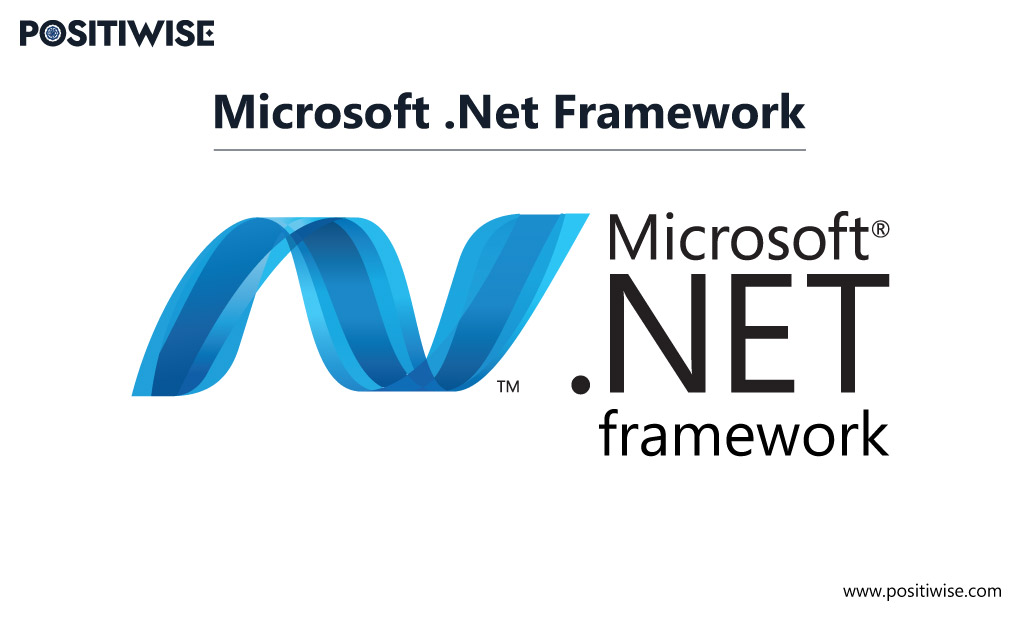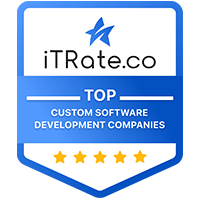Quick Overview:
In the context of the .NET Framework, interoperability is the capacity of various software elements or systems to interact and function as a unit. Here in this blog, we will discover in detail the language independence, multi-platform, and secured functionalities of interoperability in .Net framework. We will also explore the simple processes that help us improve efficiency and many more basic features of interoperability.
Introduction
In actuality, “interoperability” refers to the capacity of various organizations and systems to cooperate. In technical infrastructure engineering contexts as well, this word is frequently employed. There is a lot of interaction between many new and old systems in computer systems. It offers language interoperability in .NET Framework-compatible language classes to communicate with one another—and has a sizable library.
Integrating Multiple Programming Languages with .NET Framework
Developers can select multiple programming language with .NET framework that best fits their needs and tastes from a variety of options supported by the framework, including C#, Visual Basic .NET (VB.NET), and F#. The .NET Framework, with its abundance of features and functions, makes development easier by offering a solid base on which to build safe, scalable, high-performing applications. The .NET developers frequently use it to create dependable and durable software solutions since it provides smooth connections with other Microsoft technologies.
Benefits of .NET Integration with Existing COM Components
Without converting the current COM components to.NET, the .NET components may converse with them. that is to say, this function greatly aids in lowering the cost of business systems migration. I will go into more depth about it later. This not only minimizes the amount of components that need to be sent, but it also ensures that your code only includes the portions of the PIA that are truly needed by your application. Your produced code may significantly reduce in size since you only use a portion of a large COM object.
When creating business applications—that is, apps intended to facilitate corporate operations, procedures, and processes—the .NET Framework provides several advantages that are especially beneficial when you take a glimpse of them all in detail. Here are a few of them.
Language Independence
Due to its outstanding language freedom, the .NET Framework has become more and more popular among developers. Using the same basic foundation, it enables hired .NET programmers to write code in other programming languages, including C#, Visual Basic.NET (VB.NET), F#, and more. Because of this flexibility, companies may use their current resources and knowledge while selecting the language that best meets their development goals.
Businesses may easily connect distinct components created in different languages because of language independence, which improves interoperability and code reuse. As a result, developers can concentrate on creating readable, accessible code in the language of their choice, which cuts down on development time and effort. This makes it compatible with any platform that utilizes the .NET runtime.
Multi-Platform Interoperability in .NET Framework
When it comes to developing apps, one of the most popular options for companies is the .NET Framework. Cross-platform interoperability, which makes it simple to create cross-platform apps that function flawlessly on several operating systems like Windows, macOS, and Linux, is one of the .NET Framework’s main advantages. The framework makes it simpler for developers to select their favorite language by supporting a variety of programming languages, including C#, F#, and Visual Basic.NET.
For companies wishing to develop online apps, ASP .NET core web app development provides further advantages as an addition to the .NET Framework. It enables programmers to create scalable and reliable online applications that work on PCs, tablets, and smartphones, among other platforms. Businesses that create ASP.NET core web apps may make use of many features and technologies, such as integrated authorization and authentication services, to help protect their applications from unwanted access.
Enhanced Security Functionalities
Any business application must prioritize security, especially when handling sensitive data and activities. A comprehensive collection of security measures provided by the .NET Framework aids in shielding programs against frequent flaws. To protect data and provide secure communication, it has integrated security features, including code access security, verification, and encryption. Frequent security updates and fixes for the .NET Framework also help to mitigate new threats and vulnerabilities. Businesses can feel confident knowing that apps developed on the .NET Framework are updated and secure, thanks to this proactive strategy that guarantees data security and compliance.
Simple Procedure for Deployment
One of the most important aspects of developing applications is the deployment process, which is made a lot simpler. It offers a stable deployment methodology that facilitates the distribution and installation of programs on target computers. Developers may bundle their apps with all necessary dependencies and settings for configuration into a single installer.
The deployment mechanism of the .NET Framework also has capabilities like auto upgrade and fixes automatically and doesn’t require user participation. This guarantees that businesses can promptly implement security and safety updates, and feature upgrades. This bug fixes their users, that enhances the overall user experience and reduces the downtime.
Coding Structure Reduced
The .NET Framework gives developers the ability to build clear, maintainable code by providing a streamlined and user-friendly coding framework. It also helps to eliminate the requirement to start from scratch. This happens by offering a vast class library with a variety of already constructed elements and APIs. The vast library provides pre-configured functionality for multiple tasks, including data access, networking, user interface design, and more. This helps free up developers to concentrate on business logic instead of intricate implementation details.
The object-oriented programming paradigm of the framework encourages modular development and code reuse, leading to more effective and scalable applications. Additionally, it has capabilities like automatic garbage collection and automated memory management. This aids in revealing to developers the load of scheduling and allocation of resources, which helps in enhancing the stability and speed of applications.
Large Collection of Instruments and Materials
With its vast range of tools and resources, the .NET Framework makes it incredibly easy to design commercial applications. It gives them access to a large library of pre-built controls, components, and APIs that they can use right away to speed up the process. The extensive class library covers an extensive range of features. These features include file management, networking, cryptography, user interface design, and data access.
.NET developers will help save a great deal of time and effort. While developing by utilizing the pre-built components found in the .NET Framework. Rather than wasting too much time on tedious or simple code, the users may concentrate on developing the main business logic.
Community Assistance
The .NET Framework provides benefits through a thriving and dynamic developer community that offers professional, committed .NET developers tremendous assistance. The community provides a multitude of tools, including code repositories, blogs, forums, and online communities, where developers may work together on projects, exchange information, and ask for help. Developers can remain updated on the newest trends and standards of excellence. This helps to promote continuous learning and makes problem-solving easier.
Developers may get answers to their coding problems, learning from seasoned pros, and making use of the community’s pooled expertise. The presence of community-driven resources guarantees that the developers may effectively overcome obstacles. This also helps them streamline their development procedures, and create strong commercial apps.
Improved Efficiency and Expandability
For commercial applications to handle elevated workloads and user demands, speed and capacity are essential. Code is compiled into machine language during runtime with the help of the just-in-time (JIT) compilation capability. The following process leads to quicker execution and better performance. To increase efficiency, the framework also makes use of code optimization methods.
Furthermore, the .NET Framework facilitates parallel and multi-threading processing. This allows the team of hired .NET developers to create programs that efficiently leverage contemporary hardware capabilities. It is possible to use system resources more effectively, improves application responsiveness, and guarantees that simultaneous user requests are handled without hiccups. Using these scalability and performance advantages, businesses can create reliable, efficient apps to suit their expanding demands.
Implementation of Interoperability in .NET Framework Projects
The implementation of interoperability in .NET framework are available to any .NET language. This lets developers choose the language that best suits their application’s needs. A developer with C++ skills may choose to use C++/CLI for .NET programming. This suggests that customers may continue to use a language of their choice and yet take advantage of all the features offered by the .NET framework. Similar to this, a Python developer may use Iron Python, for example, a .NET language, to construct their application.
Conclusion
The .NET framework is a powerful tool for developers, which makes it a preferred choice for businesses looking to hire skilled .NET developers. Because of its many essential features and benefits, it’s a flexible and powerful platform that can be used to create a wide range of applications. Whether you are a seasoned .NET developer, an organization looking to hire .NET experts, or a novice starting, the .NET framework offers the necessary tools and features to effectively create excellent apps quickly and accurately.
The capacity of code to communicate with other code produced using a different computer language is known as language interoperability in .NET Framework. Language interoperability can increase code reuse and, thus, boost the process of development productivity. Any code developed in a .NET language that has been compiled is reusable in other .NET languages.
Expert in Software & Web App Engineering
Parag Mehta, the CEO and Founder of Positiwise Software Pvt Ltd has extensive knowledge of the development niche. He is implementing custom strategies to craft highly-appealing and robust applications for its clients and supporting employees to grow and ace the tasks. He is a consistent learner and always provides the best-in-quality solutions, accelerating productivity.






